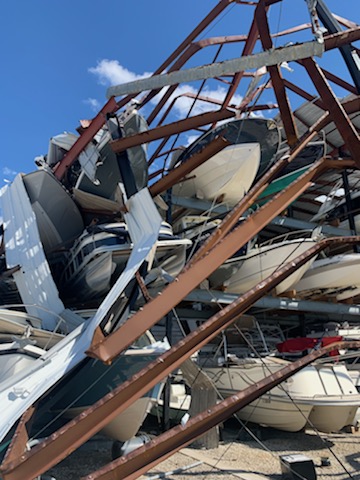
Waste Collection and Transportation
Waste collection and transportation are vital components in the process of a demolition
recycling company. The goal is to efficiently and safely transport waste materials
from the demolition site to a recycling facility or landfill.
Stages of Waste Collection and Transportation
- Assessment: Before collection begins, the waste materials are assessed
for volume, type, and potential hazards.
- Segregation: Waste is separated based on material type, recyclability,
and disposal requirements. This step is crucial for efficient recycling.
- Collection: Waste is then collected in designated containers, such
as bins, dumpsters, or specialized containers for hazardous waste.
- Transportation: Collected waste is transported using specialized
vehicles designed for handling various waste types, ensuring safety and efficiency.
- Documentation: Accurate records are maintained for regulatory compliance,
including waste manifest detailing the type, quantity, and destination of the waste.
Considerations for Transportation
- Vehicle Type: Depending on the waste type and volume, different
vehicles like roll-off trucks, dump trucks, or tankers may be used.
- Route Planning: To reduce transportation costs and emissions, efficient
routes are mapped out, considering road conditions, weight limits, and proximity
to the disposal site.
- Regulations: Transportation of waste, especially hazardous waste,
is governed by strict regulations to protect public health and the environment.
Benefits
Effective waste collection and transportation by a demolition recycling company ensure
that materials are repurposed, recycled, or disposed of properly. This process reduces
environmental impact, conserves resources, and ensures public safety while adhering
to regulatory standards.